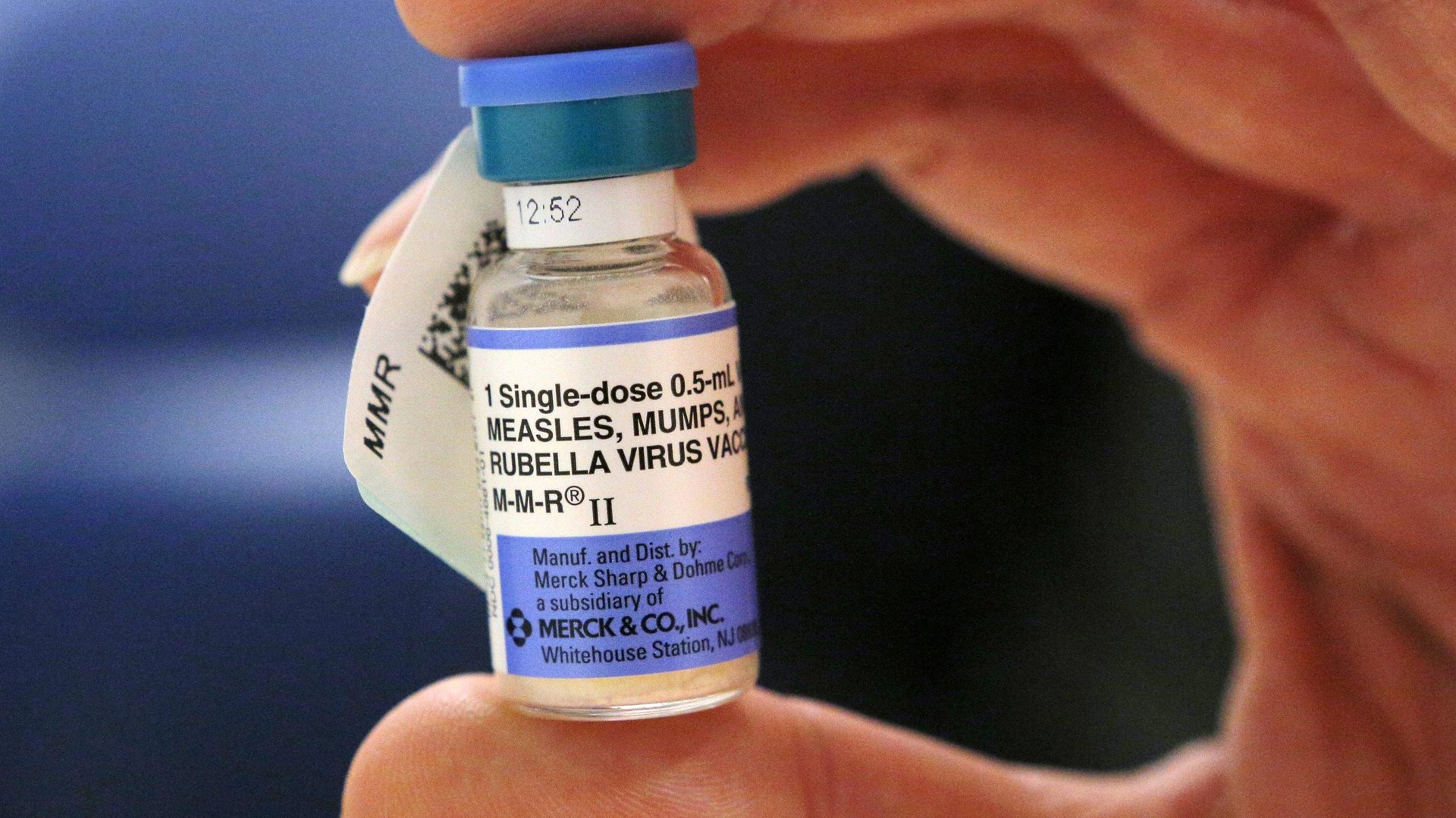More than 20 million kids miss out on the first dose of the measles vaccine every year
Amid news of serious measles outbreaks in several countries around the world, the United Nations Children Investment Fund (UNICEF) released a report this week showing that 21.1 million children miss out on the first dose of the measles vaccine every year, creating a “pathway” to the global outbreak.


Amid news of serious measles outbreaks in several countries around the world, the United Nations Children Investment Fund (UNICEF) released a report this week showing that 21.1 million children miss out on the first dose of the measles vaccine every year, creating a “pathway” to the global outbreak.
Measles can cause fevers, coughs, and rashes, but also blindness and brain damage in serious cases, and kills about 110,000 children every year. Thanks to the discovery of a measles vaccine, the disease was effectively eradicated in many wealthy countries in the world, and deaths tied to the disease dropped by 80% between 2000 and 2017 globally. But a surge of anti-vaccine sentiment and global complacency (paywall) about the severity of the disease has allowed it to make a comeback in some countries, including the US.
The measles vaccine requires two doses to effectively protect kids against the disease. According to UNICEF, only 85% of kids globally received a first dose of the vaccine in 2017, and only 67% received the second dose. That is far below the 93-95% threshold the World Health Organization says is required for herd immunity (pdf), the point at which everyone in a given community is protected from the disease, even if they could not get the vaccine themselves. In a press release, UNICEF blamed this on “lack of access, poor health systems, complacency, and in some cases fear or skepticism about vaccines.”
Rich countries generally have better vaccination rates than poor countries. According to UNICEF, 94% of kids in rich countries get the first dose of the measles vaccine, although coverage for the second dose drops to 91%. But not every rich country reaches herd immunity levels. Between 2010 and 2017, there were seven wealthy countries in which fewer than 95% of children got the first dose of the measles vaccine:
The situation is a lot more worrying in low- and middle-income countries, where the report says that the numbers of kids not receiving the first, and especially the second, dose of the measles vaccine is “critical.”
“The ground for the global measles outbreaks we are witnessing today was laid years ago,” said Henrietta Fore, UNICEF executive director, in the release. “The measles virus will always find unvaccinated children.”